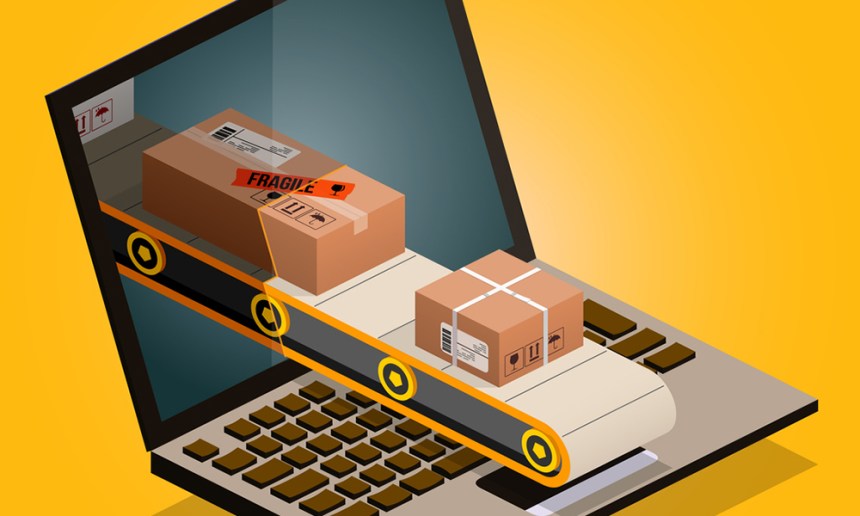John Redmayne, CEO of ERP UK, explains what ‘Small Producers’ must do about new EPR for packaging reporting thresholds.
Quietly, but firmly, the government has halved the reporting thresholds for businesses under its Extended Producer Responsibility (EPR) scheme for packaging – meaning thousands of smaller UK businesses are now in scope.
Previously, only firms turning over more than £2 million that handed over 50 tonnes of packaging a year needed to register. But under the updated rules, any business with a turnover of just £1 million that handles as little as 25 tonnes of packaging now falls under the spotlight.
A new category, defined as ‘Small Producers’, has been created by the legislation. These can be small or large companies across a wide range of activities – including importers, brand owners, online marketplaces, filler suppliers, packers, service providers, and distributors.
While there is a lesser compliance burden on this group, compared to large producers, reporting of packaging usage is legally required. Data will need to be submitted in 2025, covering the activities of 2024.
The immediate costs to register and comply are relatively low. However, the risk of non-compliance is anything but. If an organisation misses the reporting deadlines, or fails to register, hefty fines could follow.
The Environment Agency recently told trade magazine The Grocer that it took action against more than 1,000 companies in the five months to March 2025, to bring them in line with the ERP rules.
For many SMEs, whether in floristry, catering distribution or e-commerce footwear, this change could easily slip under the radar until it’s too late.
Smaller businesses often don’t have the luxury of legal or compliance teams, so many aren’t even aware that they are now accountable for their packaging waste.
How should Small Producers proceed?

Get registered, and gather data
Even though the 1 April 2025 deadline has passed, it’s not too late to act. If you’re a Small Producer looking to future-proof your business for compliance, the sooner you get organised, the better. Start by checking if you’re affected – the government has a helpful online guide .
If you meet the new thresholds, registering with their environment agency and paying the correct fee is essential. There are two ways to manage your packaging obligations:
- register directly via the Report Packaging Data service;
- or join an approved compliance scheme.
If you register independently, you’ll handle the entire process – from registration and data reporting to gathering recycling evidence and submitting your annual certificate.
If you join a compliance scheme, they’ll manage this on your behalf – including registration, reporting, and certification – so you don’t need to register separately with the regulator.
As a guide, the annual EA registration fee is £1,216 for a small organisation and £2,620 for a large one – with a £332 late fee if you miss the deadline. Compliance scheme fees differ.
It’s also important to understand how much packaging your business uses – including both what you send out and what you receive. Tracking what happens to your waste after it leaves your site can help shape smarter supplier and recycling choices.
Many businesses choose to work with a compliance scheme to simplify reporting, reduce errors, and ensure their obligations are met.
At ERP UK, we’re seeing lots of companies contacting us for help with their packaging data and to better understand the new regulations, a clear sign that businesses want to get it right and future-proof themselves. Others prefer to manage the process in-house.
Smarter waste management
The new rules mark more than just another layer of regulation – they represent a fundamental step towards a greener, more circular economy in the UK.
Local councils have long shouldered the burden of dealing with packaging waste, but under EPR, the financial responsibility is shifting: those who produce packaging will now help fund the infrastructure needed to collect, sort, and recycle it properly.
By widening the net, regulators aim to build a much clearer picture of the packaging flowing through the UK system – a crucial move in reducing landfill and ensuring materials are reused wherever possible.
Even if your business isn’t yet directly affected, now is the right time to scrutinise your packaging use and future-proof your operations.
The money raised through this new system will directly support the creation of smarter, more efficient waste management – laying the groundwork for a circular economy that works for both communities and the environment.
For businesses large and small, this isn’t just about compliance; it’s an opportunity to be part of a system designed to close the loop on waste and build a more sustainable future.
The post New packaging waste rules: What should ‘Small Producers’ do? appeared first on Circular Online.

